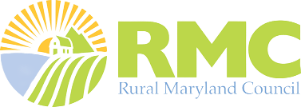Recently passed Fiscal Year 2023 Maryland Operating Budget includes historic funding for rural communities
Annapolis, MD – On April 11, 2022, the Maryland Legislature adjourned Sine Die. Among the session’s many accomplishments, the Legislature approved the Fiscal Year 2023 State Operating Budget which included $9,000,000 in funding to support the Rural Maryland Prosperity Investment Fund (RMPIF) – 50% more funding than in previous years. The Rural Maryland Council would like to thank Governor Hogan for appropriating funds to support RMPIF, the Maryland House of Delegates, and the Maryland Senate for their support, and the numerous individuals and organizations that voiced their strong support for increased rural investment.
“We want to express our gratitude for these important and necessary funds that will be used to invigorate the economies in all of our rural areas,” said RMC Board Chair, John Hartline, “This record funding will expand the reach of our grant programs, allowing for even more positive impacts across rural Maryland and accelerating the recovery of our rural communities from the negative economic effects of COVID-19.”
The Rural Maryland Prosperity Investment Fund targets investment to promote economic prosperity in Maryland’s traditionally disadvantaged and underserved rural communities by sustaining efforts to promote rural regional cooperation, facilitating entrepreneurial activities, and supporting key community colleges and nonprofit organizations. This fund will support the Rural Maryland Council’s activities and the Maryland Agricultural Education and Rural Development Assistance Fund (MAERDAF) which provides capacity-building funds to rural nonprofit service providers. It will also support the state’s five rural regional councils, regional infrastructure projects, rural entrepreneurship development, rural community development, and rural health care organizations.
The RMPIF and MAERDAF grant programs have provided substantial amounts of needed opportunities and resources to our rural communities over the years. With the State’s investment, an additional $67 million in federal, local, and private funding has been directed into our rural areas. Overall, the RMPIF program between 2018 and 2021 has resulted in $124 million in economic impact and $40.9 million in employee compensation. The MAERDAF program has provided $12.1 million in additional economic impact and $4.4 million in employee compensation.
The two-phase online grant application process opens on Monday, April 25, 2022, and the Phase 1 – Letter of Intent will be due by Friday, May 20, 2022, at 11:59 pm. The Council will host four grant information sessions this Spring. These information sessions are important opportunities for participants to meet RMC staff and learn about the Council’s two grant programs. An information session will be presented by Zoom teleconference for those who cannot join in person.
| Date | Location | Address |
| Wednesday, April 20, 2022, 12:00pm to 2:00pm | Zoom Teleconference | Zoom Teleconference |
| Friday, April 22, 2022, 12:00pm to 2:00pm | Tri-County Council for Southern Maryland | 15045 Burnt Store Road, Hughesville, MD 20637 |
| Tuesday, April 26, 2022
12:00pm to 2:00pm |
Thomas Welcome Center, Allegany College | 12401 Willowbrook Road
Cumberland, MD 21502 |
| Thursday, April 28, 2022
12:00pm to 2:00pm |
Delmarva Community Services
The Harry & Jeanette Weinberg Intergenerational Center |
108 Chesapeake Street
Cambridge, MD 21613 |
| Monday, May 2, 2022
2:00pm to 4:00pm |
Leading Edge Training Center | 2002 Cedar Drive,
Edgewood, MD 21040 |
Learn more about the grant programs and register for an upcoming grant information session through the following link – Grant Opportunities (maryland.gov).
The Rural Maryland Council (RMC) operates under the direction of a 40-member executive board in a nonpartisan and nondiscriminatory manner. It serves as the state’s federally designated rural development council and functions as the official voice for rural Maryland. The RMC advocates for rural communities and businesses across the state to flourish and gain parity to their suburban and urban counterparts. The RMC envisions a future where residents in rural communities are achieving success in education and employment, have access to affordable, quality health care and other vital public services, and live in an environment where natural and cultural resources are being sustained for the future generations.
